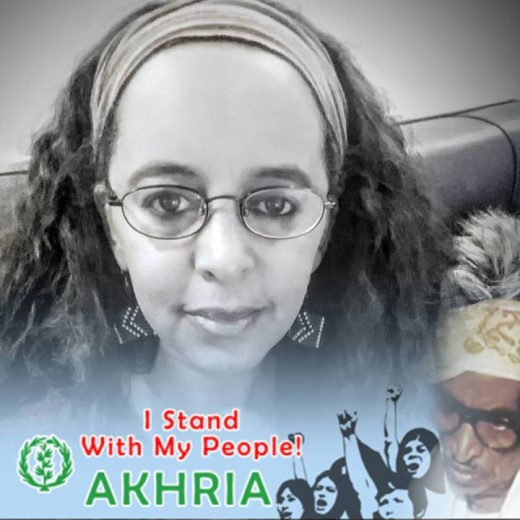Akria and the birth of fearless Eritrea!

Akria and the birth of fearless Eritrea!
When fear is your weapon of choice against your own people, a protest across town by high school students, angered by violations against their way of life, inspired by a bold speech from a revered elder and supported by their community becomes the most significant threat to your existence.
This is precisely what happened to PFDJ last week, the protest by school children in Akria, Asmara is a challenge unlike any, that the regime in Eritrea faced since marching into Asmara victorious after 30 years of struggle in 1991. Sure there have been several incidences of public outrage and there is an almost universal disapproval of the regime across the nation, but the Akria uprising is the only incidence so far that was orchestrated and executed by ordinary people from a nondescript part of the capital.
In fact protests in Eritrea started in 1993, very soon after independence, when disgruntled freedom fighters built enough momentum to summon the president to a meeting where he was forced to make concessions, but was also able to quell them for long enough for his machinations to take effect.
The next protest was in 1994, and this time, it was disabled veterans. When they protested the president had no appetite for concessions, he ordered annihilation and they were mercilessly shot at as they made their way up the hills to the capital in wheelchairs and crutches. Nothing in the history of independent Eritrea could parallel that episode of barbaric betrayal. Anyone who has attempted a protest in Eritrea, since has done so knowing full well what the regime is capable of and ready to do.
So when in 2001 university students, protested, their being subjected to forced summer service , first and then the detention of their student union leader, they were aware of the consequences and they paid for it with their career prospects, with their safety and for a couple with their lives. It coasted Eritrea the only university we had and the unrelenting brain drain that Eritrea continues to reel from. It would, indeed, be many years before any Eritrean would choose to stand up to the regime in a united act of collective defiance. Many resorted to leaving the country making the history of modern-day-Eritrea a history of people being bought and sold in the open markets of human traffickers across the Sahara or becoming a statistics (in large numbers) on the ghastly tale of migrant deaths in the Mediterranean.
Parallel to the protest of Asmara University Students in 2001 was the courageous stand taken by politicians and EPLF veterans, who wrote and open letter and gave a series of interviews in protest of the way their country was being ran. They ended up being disappeared, taking the equally courageous journalists and newspaper proprietors down with them. Eritrea became a land of mute people whose only expression of dissatisfaction became leaving the country.
And then just as everyone was giving up on Eritrea, came the January 2013 Forto uprising of military officers, a totally unthinkable moment that established two things at the same time: the dissatisfaction inside the country is potent and the movement for change inside Eritrea wants to connect with the movement in the diaspora. The first action of the officers once they controlled the Ministry of information was to contact Radio Erena and independent radio station ran by diaspora based exiled journalists. This action was transformative despite the fact that the attempted coup didn’t succeed it inspired the struggle for justice both inside the country and in the diaspora.
Protesting against a regime that seemed to control every aspect of Eritrean life, doing it in unison with fellow Eritreans inside the country and in the diaspora became a tangible reality and it is these elements that brought about the protests in Akria. Throughout the process the protestors were keen to communicate as much information as possible with their counterparts in the diaspora, building solidarity, but more crucially building the platform for international recognition of the movement for change in Eritrea. Their efforts were successful, the world media carried their images and messages across the globe, their diaspora counterparts protested in solidarity, dwarfing all attempts by the regime to silence, undermine or create confusion.
This is a new era of activism in Eritrea, the movement has its heart inside the country and a voice in the diaspora, this is all positive stuff and slowly but absolutely surely the fear with which pfdj ruled Eritrea is ebbing away.
Al’Dia the school at the heart of the protest was re-opened the following day without a single change to its status as an Islamic school, an important lesson for an entire generation of Eritreans, who thus far had y known only the response of flight to pfdj’s campaign of fear, FIGHT was introduced into the repertoire of responses.
As with everything Eritrean the Akria week was coming to an end with a fantastic joke[1] that goes a bit like this:
Anatomy teacher: where does one find the tongue?
Student: in our mouths sir
Teacher: ok good… where does one find guts then?
Student: In Akria sir!
November 8, 2017
#Akriaismyhome


![[AIM] Asmarino Independent Media](/images/logo/ailogo.png)